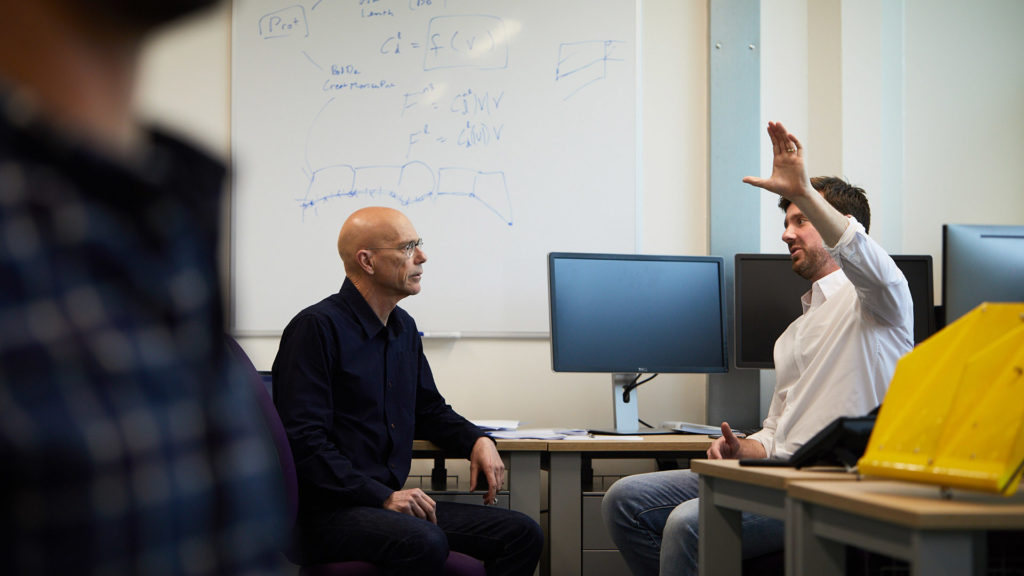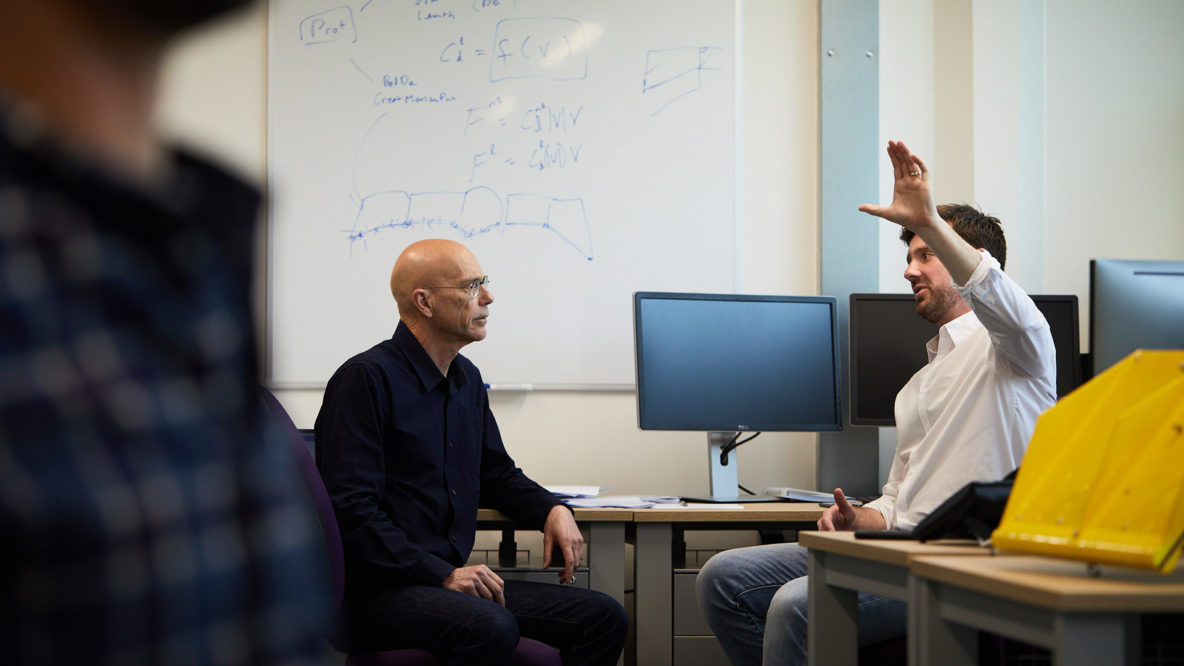14th June 2019
As the oil and gas sector faces up to the challenges presented by climate change, particularly in light of the net-zero by 2050 target set by the UK, many long-established firms are looking at novel approaches to lower their carbon impact. One of these new solutions is being developed by wave energy start-up Mocean Energy. Here company founder and managing director Cameron McNatt reflects on the challenge the industry faces, and how the Oil and Gas Technology Centre’s business accelerator, TechX, is helping companies like his to make a difference offshore.

The room at 20 Queens Road, Aberdeen is dim, the screen along the wall is still lit with the last slide of our presentation on Branding and Communications. I sit with rest of my TechX cohort in groups of five or six around three long tables, and the discussion has turned to a controversial topic: the reputation of oil and gas in a climate-conscious world.
“I’ve really struggled to attract new talent,” says one company CEO. “Graduates just don’t want to go into oil and gas anymore.”
“We’ve spoken with a number of investors who are very interested in our technology but are reluctant to support companies engaging with the oil industry,” says another.
At Mocean Energy, we also face a dilemma: we’re a renewables company whose aim is to reduce CO2 emissions, but I’m spending my summer in the Oil and Gas Technology Centre’s flagship business accelerator, TechX.
I want to tell you why.
Only two miles down the road, oil giant BP is in the firing line as climate activists protest outside the firm’s AGM. At one point, some break into the event, screaming “this is a crime scene”.
But BP isn’t doing nothing. The pressure to address climate change is coming from within too.
In fact, at the very same AGM they passed Resolution 22 (with 99.1 percent of investors voting for) which states that the company will set out a strategy to follow the goals of the Paris Agreement including “holding the increase in the global average temperature to well below 2 °C above pre-industrial levels and pursuing efforts to limit the temperature increase to 1.5 °C…”
Their strategy includes balancing oil and gas investment with investment in other energy generation technologies and reducing operational greenhouse gas emissions – in other words, decarbonising the way they work.
Another major, Equinor, is the poster child for the integrated transition from oil and gas to renewables, changing its name from Statoil, and developing floating offshore wind farms to power oil platforms.
Already their first 30MW farm is generating green energy off the coast of Peterhead, not many miles from where we are all sat.
Similarly, the OGTC with its ear to the pulse of the industry is setting in place roadmaps for addressing climate change through oil and gas industry activities. A near-term target is integrating marine renewable energy into offshore systems, and in the long term ambition is a global net-zero industry.
At Mocean Energy, our vision is to create renewable wave energy technology to support low-carbon utility-scale energy production. However, we must take a practical approach: developing solutions for problems in markets where the economics work today.
That is why we are developing Seabase, a compact wave energy converter which will provide reliable renewable energy to power a range of subsea applications – from subsea control systems to ROVs and fully autonomous underwater vehicles.
The offshore oil and gas industry needs energy at sea and it needs to decarbonise its processes. We can help them do both.
Powering offshore equipment with wave energy displaces energy generated by diesel generators or gas turbines. Another application for Seabase technology is to power ROVs so that they can remain resident at a well sites, carrying out repeated maintenance while being operated from shore. This reduces large vessel usage and the corresponding emissions and, of course, cost.
Our long-term ambition is to generate grid-scale wave power. But meanwhile, we believe that by selling our technology in non-grid markets today, we can learn by doing and reduce costs to create a pathway to large-scale wave energy.
No single firm can take this journey alone. And that is why I have been so delighted to spend time in Aberdeen, sharing our experience and meeting others with a passion to change the way in which the oil and gas industry operates.
The TechX scheme is a great example of the industry taking a leading role – giving tailored support to start-up firms who are delivering technologies that will position the oil and gas industry for a sustainable, low-carbon future. I, for one, have already benefitted greatly from the process.
Scotland has extraordinary experience and expertise in the maritime operations – and if companies such as Mocean Energy can engage with the offshore industry as both a supplier and a collaborator within the supply chain, we can help in the long-term transition of the UK offshore industry from oil and gas to renewable energy.
The oil boom of the 1970s heralded an incredible era of innovation in and around Aberdeen. My hope is the climate emergency of today drives a similar boom in green technology bringing export opportunities and delivering new skilled jobs to the sector, whilst building a better world for the generations to come.

